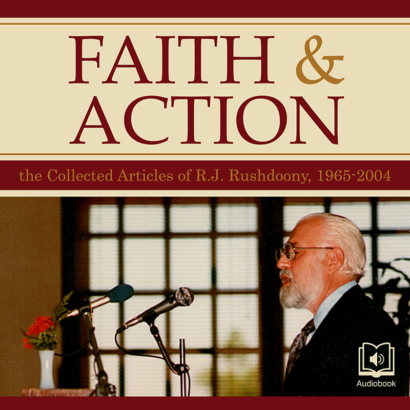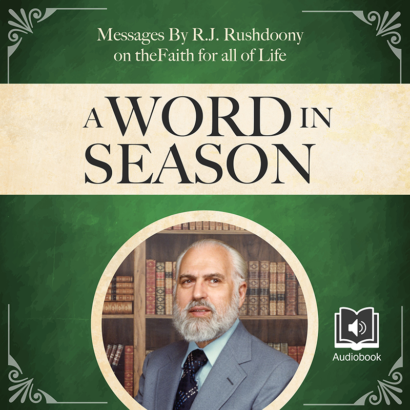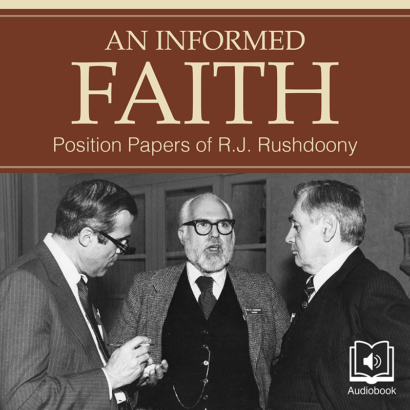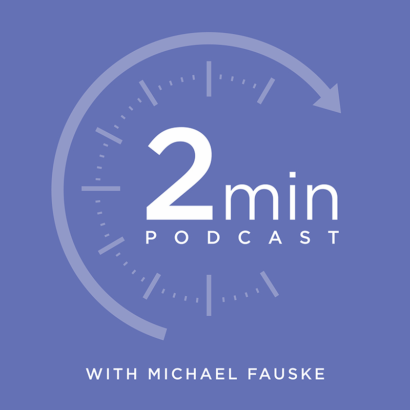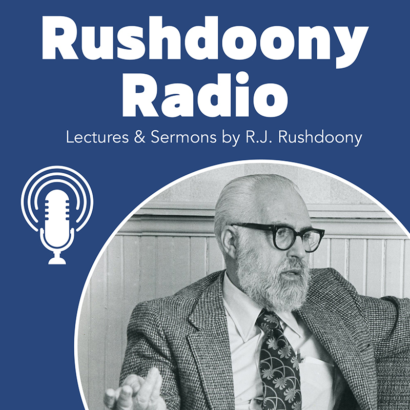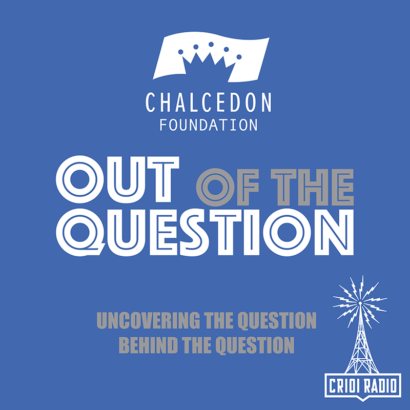
You Reap What You Sow
• Mar, 12 2024
Hosted by
Husband, Father, Pastor, Teacher, Podcaster, and Christian Education Advocate
- Series: The Last Kingdom
- Topics:
Jeremy Walker (00:02):
And welcome back to another episode of The Last Kingdom. I'm your host, Jeremy Walker and on this episode of The Last Kingdom, it is now February 7th, 2024. Our topic, You Reap What You Sow. We're going to be discussing Galatians 6, Christian nationalism, speaking in tongues, David Chappelle. We're going to be talking about California convicts, TikTok herpes confessions, virtual reality rape in the UK, illegal immigration, African candidates that want to kill whites, and even the Epstein list. And last but not least, the haunting of Venice with Hercule Poirot.
(01:03):
Welcome, welcome, welcome my friends to another episode of The Last Kingdom. This is episode number three. In our opener there I gave you quite a few things we are going to try to discuss and talk about, and I want to jump right into those things and just jump off the bat. If you are new to The Last Kingdom here, I am your host, Jeremy Walker. I am a preacher. I am an educator. I am a father of 11. I've been working in early childhood education for over 20 years. And I also podcast like this one here to discuss topics.
(01:41):
Well, I wanted to start with a very important concept. We all like to be negative, but if you paid attention to The Last Kingdom, this entire podcast is to talk about the absolute ridiculous nature that Christians could ever, ever be discouraged, to think that ever the world was spinning out of control, evil has the upper hand and somehow we might not win. Well, none of that is true and I want to discuss that right now.
(02:11):
Let's start with our opening passage, Galatians 6. We'll be reading verses 7 through 10. Let's start. "Be not deceived; God is not mocked: for whatsoever a man soweth, that shall he also reap. For he that soweth to his flesh of the flesh he shall reap corruption; but he that soweth to the Spirit shall of the Spirit reap life everlasting. And let us not be weary in well doing: for in due season we shall reap, if we faint not. As we have therefore opportunity, let us do good unto all men, especially unto them that are of the household of faith."
(02:58):
This is important because one of the most important aspects about these type of passages is that reaping what you sow always normally seen in a negative light, a kind of warning if you will. You better be careful. You'll reap what you sow. Be careful not to do bad things.
(03:16):
Well, that's all true because we should be very careful, very, very mindful. If you have not read through the book of Proverbs yet, you should definitely do that. One of my favorite parts of the book of Proverbs is I go through that with my children in our personal Bible study. We're actually going through that now. It's really wonderful to sit with your family and your kids and to teach them the word of God. Kind of sets the tone of your discipline if you will, to teach them in the faith.
(03:44):
And the Book of Proverbs is a very practical book and this is one of those concepts about reaping what you sow. One of the most famous passages being that those people that kind of ignore the word of God, ignore the law of God, the wisdom of God and the correction of God, those people eventually are going to fail. They're eventually going to fall. Pride comes before the fall is one of the Proverbs. And when they do fall, they might turn to God. Now as a last resort, they want help. Look at all the problems.
(04:17):
Well, God's not going to be there to help you. You do reap what you sow. The vast majority of your problems in life or the other people around you, the problems in their life, they're not from the people on the outside. You're not a victim of an oppressive society or bad family. You are the victim of poor, immoral, godless choices. That's the vast majority of the time. You do really reap what you sow. Don't be upset when you reap evil. You've done nothing but sow evil your entire life. And so whenever it finally comes to fruition and bears fruit for what you were hoping to get and you have evil come your way, you're getting exactly what you asked for.
(05:09):
However, there's the other side to this as well. There's a very positive aspect. You do reap what you sow, so you should be careful not to sow evil, otherwise you will reap evil upon yourself. However, if you do reap righteousness, if you sow good things in righteousness, you'll also reap good things in righteousness.
(05:34):
This is a rarely discussed topic, one that people very rarely discuss. If somebody is doing well, if they have a good situation for family, for life, for finances, for anything else, it's always like, "Well, they just had a better lot in life. They're just lucky." Well, maybe they're not so much lucky as they are righteous. Maybe they made a lot of good choices along the way throughout their life and all of a sudden, guess what? They're now reaping all the goodness that comes from those choices.
(06:10):
See, us as Christians, we are not failures. We are the victors, not just in the afterlife to come, which is absolutely true, the second life, the resurrection, but we are also those who are succeeding and victorious right now.
(06:29):
See, Christians and their families, we are at a severe advantage. We have, as you could say, Christian privilege because every one of us who has a Christian family or comes from one, we keep the commandments, we teach the keeping of the commandments instead of the breaking of them. Other people, they kind of embrace that sinful lifestyle or this idea of radical individuality if you will.
(06:58):
Christians don't teach that. They don't live that way. And because they don't, we are at a wonderful advantage. In the future, one day, one week, one month down the road, a year down the road, 10 years down the road, a generation, two generations down the road, every single person who participated in lawful living reaping good things because of the good things they sowed in the beginning.
(07:30):
There is no accident in this life. God tells us things are very systematic. And if we want good things to happen, we need to sow good things now, because you are going to reap what you sow. Absolutely. It's very important for us not to think that for some reason bad things aren't going to happen to you or to some idea say that if you're good now, good things are not going to happen to you. Yes, they are. If you sow to the flesh the evil, you're going to reap corruption to the flesh here and in eternity. But if you sow to the spirit which is godly living, lawful living, then you're going to reap life everlasting and the rewards that come here temporally.
(08:20):
This is something as Christians we need to make sure not only that we believe and understand, but also teach to our children and to those other Christians around us.
(08:30):
So many people are so pessimistic all the time. Why? The Christian life is the one that needs to be mimicked. We have everything to teach. We have everything to mimic. So question: why is it then that most people don't teach this? Why is it that most people are not living victoriously now? Well, it's very simple. They don't teach it because if they did, they'd have to shine a spotlight on the fact that they're not living righteously because their outcomes are poor.
(09:06):
Most people have poor outcomes, either poverty or families are broken or otherwise, and they see it as somehow kind of an accidental thing when it's really not. These are choices by one person or many people over long periods of time and there is something to reap either good or evil. It's something that we are absolutely going to have to beat into our brains that keeping God's commandments is a positive thing and it produces positive results now and life eternal.
(09:42):
Now we are supposed to do our best as we were talking about here already, to do good unto all men. What is good? Keeping the commandments towards other people. It's not very complicated. And when you are nice and good to other people, you keep the commandments towards them, good things are going to happen. If you are going to be an evil person and do evil to people all around you, what do you think is going to happen? Bad things are going to happen. You better believe it.
(10:12):
See, we are going to have to teach this to our children and we're going to have to live as if this is the truth. You will reap what you sow. If not today, then maybe in a week, a month, a year, a decade or longer, but it's coming around. You can't escape it.
(10:34):
I remember that old movie, the one about The Neverending Story, and I liked the imagery. It had the wolf-type creature who kind of worked for The Nothing he was chasing after the kid, and he was kind of relentless in his search for him and he could not be stopped. And I kind of catch that imagery when we're talking about you reap what you sow. Either one, evil is hunting you down and is going to get you because you broke God's commandments and God is going to punish you, but also the same is true. Righteousness will certainly find you out and so will your sin.
(11:12):
This I think is a great place for us to start our podcast episode, You Reap What You Sow. So I want to jump into now some discussions. I have a variety of discussions here. I mentioned a bunch of them in the opening. I want to jump on one that I just want to touch on and maybe have a different perspective on this, but the concept of Christian nationalism. Well, first of all, it's a loaded term, a very loaded term. Let's start with a couple concepts.
(11:40):
First of all, should a nation be influenced in its laws, be influenced in its structure and how it operates by Christianity, meaning the laws of God? Well, obviously. What Christian would say, "No, I don't think that a nation should be against stealing. No, I don't think a nation should be against murder. No, I don't think a nation should be against ad nauseam."
(12:05):
So any person who doesn't agree that a nation, much less just a person, a family or a community, a nation or the world at large should not be influenced by Christianity, God's law, righteous living, these are not Christians. They can't be.
(12:23):
When we were given the mandate to go out and teach the nations, disciple them, instruct them in how they're supposed to live. It's not just an individual concept, but it's a family concept. It's a business concept. How you do business should absolutely be confined by what God says is right and wrong. How you do with your family, your personal relationships, and yes, your political views and how nations interact with other nations.
(12:55):
So to be against the concept that nations should not be influenced by Christianity or God's law, God's word is ridiculous. You have to absolutely believe that. However, the vast majority of people when they say that concept, they don't mean that. So for me personally, I hate the term Christian nationalism because that's not what they mean. I like the term Christian reconstruction. Why? It says that obviously no matter where you go, things are broken either on an individual level, in the family, in the church community as large, in your community as far as your city, your business relationships, your family relationships, and of course in the nation and it needs re-constructing. It needs be reordered to be broken and sinful because if an individual sins, a family sins, a community sins or a nation sins, they are going to reap what they sow. Bad things are going to happen. No one can break God's law and get away with it.
(14:02):
So if you want to benefit yourself, your wife, your children, your family at large, your relatives, your friends, your business associates, your nation, the world, you want them to live righteously. Therefore, they must abide by God's commandments, and the laws of a nation should also meet those standards. Otherwise, they are committing sins. They're literally lawless peoples, lawless nations and no good. They cannot reap righteousness unless they have sown righteousness.
(14:40):
So Christians should be reconstructing the world in that manner. That's why I like that term. Christian nationalism, most people, they have the concern about power. They want to get in power and force things down people's throats. This is their concept.
(14:58):
The sad thing is that if you were going to take the Christians in our churches today, most of them, which could not qualify to be an elder within the church because they don't, one, have good character themselves, two, they have not ordered their own family themselves. They don't operate businesses according to God's law and therefore how could they ever hold an office and say, "This person will lead us towards righteousness." No, they're not. They're going to lead us down the tubes.
(15:28):
Look at the churches. They're falling apart everywhere. Very few Christians can even get along. It's one of the most things that make you want to vomit and puke because they can't get along. And then you want to take those same people and say, "We want to give you power now." They would only abuse it. And is there a big shocking surprise that God has not decided to give power to these people? No. There's a reason for it.
(15:54):
So until we have righteous men ready to have righteous families and righteous communities and righteous businesses, we can never expect a righteous nation to emerge. We need to do a lot of reconstructing of ourselves, of our families, of our communities before we can ever expect a nation to also turn to God.
(16:20):
Next I want to talk about another thing I've been reading about. I love R J Rushdoony and his books. He's for me, one of the greatest theologians of all time. I put him up there with Calvin and Luther and many others, but I'm reading his new book on 1 and 2 Corinthians. Wonderful book. It's a commentary on, as you guessed it, 1 and 2 Corinthians and he was talking about a subject which when I first became a Christian, I couldn't kind of put my finger on what to think about it. The concept was speaking in tongues.
(16:50):
And I'd gone to a church one time. There's this person I knew, a good friend of mine. After my conversion, I found out that they went into a charismatic type church. I didn't know what it was. I grew up in a southern Baptist church, so I was like, "Hey, I'll go."
(17:03):
So I went. And this very normal person that I had known for a very long time, grew up in school with for probably 10 years, all of a sudden started shaking and falling on the ground like they had been slain in the spirit as some people call it. And then people in the background over here, the people over there started shouting, just literally screaming, incoherent babble. Then all of a sudden it's like, "Can somebody interpret? Is there an interpreter here?" And then some guy stands up and he kind of paraphrases the sermon that we just heard, the exact words. It's like they almost had it scripted. I came away from there going, "These people are nuts. They're crazy."
(17:46):
Now why do I bring all that up? Because most of the time people think the concept of speaking in tongues is an unknown language. This thing which you can hear it, but it doesn't make sense to us. It's literal babble like the Tower of Babel.
(18:00):
But Rushdoony makes these great wonderful points and they're all based on scripture and I had already come to this conclusion, but hearing somebody else also say it also kind of reiterates that. First of all, what was important about speaking in tongues? At Pentecost, whenever the flaming tongues came down on all the disciples in Jerusalem, they all spoke, but every person that was there was from a variety of different places, a variety of languages, tongues, languages, actual languages, English, Spanish, German, you get it? Actual languages. And whenever these people spoke, everyone heard it in their own language. So like this one person speaking and 17 different languages are there represented. And every person swears, swears that guy was speaking Japanese. That guy was speaking Cantonese. No, he was speaking English. I heard him in English. No, I heard him in German. That clearly was Farsi.
(19:00):
This was a miracle, not in the fact that somebody's languages are translated, but that they could hear the gospel in their own language. That is the key to tongues.
(19:16):
See, these guys were given a spiritual gift and they could literally speak languages that they had never spoken before perfectly. The intention was to transmit the gospel, the very words of God throughout the world.
(19:34):
Some people say, "Well, are you a secessionist? Do you believe that these gifts have been done away with?" I would say that you can't necessarily say that they've been fully done away with, these types of activities. Otherwise, you'd have to say that God can't or doesn't operate in those methods anymore. I wouldn't venture to say that. I would definitely venture to say this, is that the people who are claiming to speak in tongues are not speaking languages for another person who does speak that language to understand the gospel. That's not what they're doing.
(20:11):
And Rushdoony did a wonderful job of explaining that, also going into the concept that the reason for the teaching was to teach the word of God. It wasn't to entertain people. But when I went to that church, that charismatic church when I was a teen, I was there as the audience. I was not there as a disciple. They were not trying to teach me anything. They were putting on a show and that's what all this is about, entertainment.
(20:44):
That's not the purpose of church. That's not the purpose of the spiritual gifts that you would read about in the Bible. It is the propagation and teaching of the word of God. And when that focus is lost as Rushdoony points out very, very well, then you know that you're not listening to a person telling you the truth about what's going on in the Bible.
(21:07):
I encourage you to pick it up, 1 Corinthians, 2 Corinthians by R J Rushdoony, find it on their website at chalcedon.edu. You can also pick up the audiobook on the website that I work on rushdoonyradio.org as well. So pick it up there, take a look at it and listen to it.
(21:25):
Moving on, I want to talk about Dave Chappelle for a second. He's a comedian, a very wonderful comedian, does a wonderful job, very vulgar, but a very accomplished comedian. He recently did a kind of a stand-up gig for Netflix called The Dreamer. And one thing I love about comedians is timing. Timing because they set you up and then knock you right down, and he did a wonderful job in that discussing the concept of what happens in the world. He talked about Jim Carrey and go listen to it for yourself and you'll hear a better portrayal of it. But how Jim Carrey was a hero of his and he had gone to the set where they're doing the Man on the Moon where he was playing Andy Kaufman. And if you haven't heard about that, they did a documentary on that with Jim Carrey years later they released it about what he did, which was really insane where the entire filming he stayed in character. It was insane for every single person around there.
(22:28):
And Dave Chappelle met him on the set. And when he was on the set and talking to him, they said, "No, no, no, no, it's not Jim Carrey. You can't refer him to as Jim Carrey. It's Andy, Andy Kaufman." And I won't ruin it for you, but Dave Chappelle takes this concept of he goes, "I know that's Jim Carrey, but you're telling me that I have to act and believe that's Andy Kaufman, but I know it's not."
(22:57):
He does a wonderful job and then I won't spoil how he does the punchline, but the punchline goes around how he brings that to bear on his concept of the people who want to say that yes, I'm a biological male, but I am not, I am a female. He does a wonderful job of that.
(23:14):
As Christians, how should we approach these concepts? Well, for us, we are supposed to be respectful. Just go back to Galatians 6, live at peace with all men. In other words, you don't go to people and bash them over the head with the gospel, bash them over the head, argue with them, fight with them. Leave the people be. Leave them be. If they won't listen to the truth of the gospel, then you leave people alone. Why? They're not sheep. You are not arguing with a goat. That is not the Christian's prerogative. Our job is to go out and disciple those that we can and live in peace with all those we can't help.
(23:56):
But what your job is not to do is go be a troublemaker. Go around people you know hate your guts, you know are not going to listen to you. They don't want correction, they don't want proof, they don't want anything from you and you're just going to beat them over the head with it anyways. You are being destructive rather than constructive. And that also is not the gospel. That's not how Christians are supposed to interact with the world.
(24:21):
We are supposed to tell the truth. But also you don't go around getting yourself into trouble fighting with people for no reason. So tell the truth, be respectful to people, but don't go around trying to cause problems. And most Christians, they've never learned that concept. They think that the truth is something to beat somebody over the head with.
(24:44):
What is the gospel and the word of God for? The goats? No, it's to call the sheep to the shepherd. And then with correction and reproof, help those Christians mature in their faith so they can produce good works and earn reward. It's not for the goats. It's for the sheep. Very important to remember.
(25:15):
See, in the concept of Christian law structure, we mentioned Christian nationalism a minute ago. When a nation goes away from obeying God, you get what happened in California recently when I watched one of these videos you get on social media and whatnot. A California judge woman was in front of a convicted felon, kind of a career guy and she was sending him around away for a long time and of course he was vulgar and he ran and jumped over the judge's bench and attempted to attack her, probably kill her if he could.
(25:48):
They did pull him off and restrain him, but this is the kind of people that you get. This is the kind of culture that you develop, a lawless barbarian culture who will not recognize any restrictions upon themselves.
(26:03):
When you give up God's law as a person, a family, or definitely as a nation like in the case of in the courts in America, in California, you are going to get people who don't believe they should be restrained. You're going to get a lawless, angry, destructive, dangerous society of people. And this kind of convict here, he was only being what you were trying to teach him to be, a lawless individual. They are getting upset and were shocked by this. I'm going, "You are reaping what you sowed. You are creating this kind of character in the American people and do not be shocked when that's what you get."
(26:44):
See Christians, we have the answer, and we also have the advantage. Your family's not going to be the ones in front of the judge, attacking the judge trying to kill the judge because you want to be a criminal and don't like law and order. You and your children have a wonderful advantage because we have the gospel, we have the law of God and we try to live it at peace with all men and keep it. We aren't going to have our kids in jail. They're not going to have a life full of pain. They are going to be victors in this life and the life to come.
(27:16):
Moving on to another one, I mentioned the fact of TikTok herpes confessions and that kind of goes right into reap what you sow. Young lady, probably late teens, maybe early 20s but I don't think so, lived with her family, was on TikTok doing a confession I guess of sorts where she talked about how she was going to the doctor. She had lymph nodes swollen up in her leg and there was something going on. She wasn't sure, so she was going to go take some tests to see if she had any type of diseases, STDs in particular, and apparently she was very active in that realm.
(27:57):
Then it cuts and she had gone off, came back. Sure enough, she has herpes. She now has STDs which are going to be with her forever. It's going to impact her in everything she does. Of course, her being a person who breaks God's commandments is only really concerned with the fact that who's going to want to date me knowing that she's going to spread disease to every single person that she comes in contact with.
(28:20):
It was also going to affect her ability to have children according to what she said, and she would never be able to give a normal vaginal birth if she was having an outbreak. She'd have to have cesarean sections and so this was going to impact her life for the rest of her life. This pain, this horror. And we say you reap what you sow.
(28:40):
If you listen to God at the beginning, you don't have to worry about bad results at the end. You do have to have pity on these types of people, but have pity on your own children. Are you teaching them you reap what you sow as a Christian? Are you? Or are you going to look back and say, "My children turned out bad and it was my fault. I didn't try to do my best. The decisions they made can be traced back to part of how I discipline them, how I taught them, how I raised them."
(29:19):
Eventually they're going to have to make their own choices, and hopefully when they get there you can then say, "Remember what I taught you? You reap what you sow. You're an adult, but with adult choices, come adult consequences. And God is not mocked. You will either get good or evil based on how you acted.
(29:42):
A lot of people want to talk about the economy today. I'm going to transition there to kind of an economical discussion. The economy is not the problem, okay? People have been living in terrible situations all throughout history, and God's people always come out on top. See, the economy is not what makes a person rich or poor. It's not politics. It's God's blessing. Where one person can succeed, another person fails, and where one person fails, another person succeeds.
(30:15):
See, the economy is not an oppressor of yours. The vast majority of your problems are your bad choices. You are lazy. You don't work hard enough. You only want to work eight hours a day. You don't want to work this. You don't want to do that. Whatever your choices are, how you spend your money, what you spend your money on and how you teach your children. Did you teach your children at the beginning when they were young on diligence which is required for work? Did you teach them respect for authority, which is required for elevation? Did you teach them a trade if you could?
(30:51):
Everything comes down to what you do, and you reap what you sow. People have the tendency to think that the economy is going to hold them down. No, no, no, no, no, no, no. God is the one who raises men up, and he can do that in bad economies too. See, when we fail to understand that, we see ourselves as victims instead of victors. Stop whining. Stop complaining. Take control of yourself. Take control of your finances. Take control of your family. Do your job. Earn the money you're supposed to earn. Do the job right. God is going to bless you for being faithful to him. "You are not going to beg for bread," Solomon says about God's people.
(31:39):
The sad part is all too many Christians, that's exactly the case, poor people who can barely take care of their families. Is it the economy? Is it that they're suffering Christians because of they're godly people and just can't make it in this godless world? Or are they just losers who aren't really keeping God's commandments and therefore they can't reap blessing when they haven't sown the seeds required to reap it?
(32:14):
Let's jump to illegal immigration. What are we supposed to think about it? Well, let me ask you a question. Who owns the land biblically speaking? Well, God does. Do people? No, they don't. Where are the borders? Well, there really aren't any borders. We kind of just say, "Well, this is our border here and that's our border there." Who gets to decide where you can travel, if and when you can go somewhere from a biblical perspective? Where's the concept here? Well, there isn't any. Most of the people who are going to have these concepts based on what we might already have now, and so well, we have laws against that. Well, I like laws. Laws are good.
(32:59):
The main problem with this is that we don't have a lawful society as a nation. You don't have laws based on God's commandments so that when people cross over into America, they're not standing now in a lawful place where the law of God reigns. Where if they keep God's commandments, they're blessed, and if they break God's commandments, they will not be blessed and they're going to be punished. We don't have that kind of society. We don't have laws that are remotely God centered because if we did, you know what evil people would do in a righteous nation? They'd stay out of it. They wouldn't want to come.
(33:41):
Why would they not want to come? Because they know they're not going to be able to remain lawless. We would not put up with it and therefore they're going to go someplace else where they can be lawless or at least they can get away with it. See, in a nation where God's commandments reign, lawless people are dealt with, either they're removed from society, death penalty is a thing, or they are corrected so they can become good members of society.
(34:11):
But we don't have the problem of illegal immigration in a biblical society. People can come and go, but what keeps it safe is the Godly law order that exists there and lawful people won't put up with lawless people and righteous laws deal with unrighteous people.
(34:38):
See, immigration isn't our problem in America or anywhere else in the world. Our problem is we are a nation that has not embraced God. We have not embraced God's commandments. We don't have His standards. Therefore, we reap all the problems that come with that rejection. And when you say, "Well, how do we fix all this?" I could tell you to go back to God and his commandments, but you know what? People don't want that. They don't want it at all. And therefore they prefer to have massive problems with all the unrighteous evil that comes with it. See, they like the darkness rather than the light.
(35:19):
And therefore illegal immigration will stay a problem because the problem isn't the people coming in, it's the people that are already there. It's the nation that's not doing its job. That's where we really have to start. And it starts with individuals and families. You're not going to change a nation without starting at the bottom, grassroots if you will.
(35:44):
See, people have a whole lot of problems. They like to change the world. I was listening to R J Rushdoony's lecture series on the Gospel of John and was talking about Nicodemus, that famous John 3 passage where people love John 3:16 but ignore the rest. And he was talking about how people love to talk about how the world has problems and how the world needs to change, how they want to change the world. But Rushdoony made a great point. He says nobody wants change to start with them, their families, themselves. They don't want that change first.
(36:23):
We just have to deal with those illegal immigrants out there, those unrighteous people that are flooding on our country. What about all the unrighteous people that are already here? They're our main problem. What about the unrighteous people that are in your business or in your family, in your church? What about the unrighteousness that's inside of you?
(36:49):
Maybe you should start with something that you can control. And maybe if you sowed seeds of righteousness for yourself and family, maybe then we could think about getting to the concept of a nation doing the same.
(37:06):
And last but not least, on this subject of various topics, I want to talk about the Epstein list. Why? Because everybody's talking about it. That's basically why. The Epstein list, oh, there is a private island and there's underage people and it's pedophilia island, and we have a list supposedly of people who got on the plane or they visited the island. I heard some great interesting topics on the discussion, people talking about.
(37:31):
Well, just because a person visited there, it doesn't mean that they participated in anything that was immoral. Necessarily speaking could have gone there for the water. Maybe they didn't know what happened there. I mean, after all, if you go to Disney World, I can guarantee you right now there's probably some horrible, terrible things you don't currently know about Disney World. And if they ever did come to light, then people would say, "How many people visited Disney World? Well, they must all have been involved in this because they visited and they brought their families." You see the logic that's there. You can say, "Well, that does make sense."
(38:07):
But then of course, does anybody really care? The people that would be on this list, are these the most terrible things these people have done? Probably not. And then even if they did get this list and make it public, what would it be besides maybe bad PR? After all, is America unrighteous laws? Is America going to take anybody on this list and take them to court and then do what God says should be done to them? Would they follow God's rules about conviction? Two or three witnesses, eyewitnesses.
(38:51):
See, this Epstein list doesn't mean anything. Even if a person went to Epstein Island for the joys of murdering people, according to God's law you have to have two eyewitnesses to prosecute somebody. So even if you did have a list and say, "Well, these people went there, we know that murders happened," it wouldn't be enough to even start a trial.
(39:17):
See, people have a major problem with God's law. They don't even know it. It's an interesting thing because when God's law is properly applied, one, it goes after known verifiable criminals, and two, because of its severity of natures, depending on what the laws are that God has and the standards he gave, it casts fear, absolute terror into the hearts of evildoers and makes them want to stay away. In other words, if they're going to commit crimes, they're not going to do it here. Because why? Here God reigns. This is his realm, his laws, his standards of justice, and it's against the evil and for the good.
(40:13):
Plus, the Epstein list isn't even the biggest problem you're going to run into. Kind of like we talked about before, people like to focus on other people's sins, not their own. So maybe if we focus a little less on Epstein and the sins of politicians and other people, maybe we could change the world for the better because we would start with ourselves.
(40:35):
I want to end with some media. I touched on Loki season one, the TV show on one of our last episodes, and now I want to touch on a movie. I like talking about media because it shines through theological concepts, knowingly or otherwise. This one was a movie for The Haunting of Venice, one of those Hercule Poirot, I think I'm pronouncing that right, kind of detective novels. And it goes through a very interesting discussion. What's it on? Well, the afterlife basically, the soul, the spirit. And there's a series of discussions that happen throughout them and I want to try to share those just to finish up this episode.
(41:23):
So let's start with one of the first encounters. These are back and forth between one of the characters and Hercule Poirot. They start out saying this, "You don't believe in the soul's endurance past death?" And then Hercules says, "I have lost my faith." The other person says, "That is sad." And he ends by saying, "Yes, the truth is sad."
(41:50):
So in this story, his wife is passed and he doesn't believe in the afterlife. He's now lost his wife. He doesn't believe in his soul's endurance past death. He doesn't believe in heaven, doesn't believe in hell. She's just gone. And according to this kind of conversation that happened because I'm assuming he thought his wife shouldn't die or maybe she died before he thought she should, an injustice of sorts, going back to the fact that she should have lived and for her to die or die under certain circumstances or to get sick or to be sudden, this was evil. And because of that, there cannot be a God because if there was, God would not have done that. Not a good God.
(42:37):
Let's go on. Another discussion in the same movie goes, "I would welcome any sign of ghosts or demons. If there is a ghost, there is a soul. If there is a soul, then there is a God who made it. And if we have God, we have everything, meaning, order, justice. But I have seen too much of the world, countless crimes, two wars, the bitter evil of the human indifference. And I conclude, no, no God, no ghost and with respects, no mediums who can speak to them."
(43:15):
Here we see the fact of his discussion is a pointed one. Without God, we have no meaning, we have no order, and there is no justice. You can't expect it and to expect it is ridiculous. But if there is a God, then you can have meaning. His wife's death could have a meaning. Now, of course, he couldn't see that. Therefore, it's easy for him to believe there is no God. There can't be order. How could my wife's death be order or how could there be justice for her? With all the countless crimes and wars and human indifference, how could there be any meaning, order or justice in the world? How can there then be a God?
(44:00):
Well, that's the whole point of the Bible. That's the whole message of the Bible. Sin has entered into the world and all the things he's talking about, the countless crimes, the wars, the bitter evil of indifference of mankind to the suffering of others, it's all based on the man's sin.
(44:20):
What he misses is he doesn't point out the real problem. He doesn't see all this disorder, injustice as being a result of man's sin and therefore he cannot see the God in the background who is then going to repair all of that through his son, bring him to wipe away every tear, to bring meaning to chaos, to bring order to disorder, to bring justice to injustice, to put all things right. He has lost his faith. He does not have that concept.
(44:59):
But as Christians we do. And we believe that there is a God. We know there is a God. And therefore, even though we may not see the meaning, we may not see the order, we may not see how justice can come from all this, we know it's going to and that it does.
(45:17):
Moving on, the next conversation was, "It is good for us to know there are abiding souls that after death comes," and then the speaker is interrupted, "nothing," and then they say "something." And Hercule says, "If there is a God, he would not break his rule for her," speaking about the medium, talking about believing if this medium could talk to abiding souls. And so for the one person they said, "It's good and comforting to know that this exists." And for him, he didn't believe that. "There's nothing here. No one can speak to anyone after they are dead."
(45:58):
I won't get into it now, but we know from scripture that's not true. And Jesus Christ himself, Lazarus himself, came back from the dead. The Bible says that of God, he is the God of Abraham, Isaac and Jacob. Not that he was the God of Abraham, Isaac, and Jacob. Death is not the end. The Bible is very clear. The resurrection is coming, the second life or the second death for those that are the enemies of God.
(46:32):
Moving on. The quote ends one last thing with him before he kind of finalizes his thoughts. He says this, "I only know that we cannot hide from our ghosts, whether they be real or not. We must make our peace with them and live life somehow." He kind of ended with the concept of "If there is earth, there isn't a God. It doesn't matter. I have to move on."
(47:05):
And that's a good thing. He at least was going to come out of retirement and start helping people. I would not say that Hercule Poirot got his faith back in God, but he just kind of came to the concept that it doesn't matter if there is one or not. I can't sit around and do nothing. I might as well get back to work. In other words, you can't be bored all the time.
(47:24):
It's a very pessimistic viewpoint and the sadness of people that they can not have faith in God and they can't have it. They can't see the meaning in life. They definitely cannot see the meaning in death, and that's why they fear it. That's why they hate it, and that's why they get angry and bitter when loved ones die. But for us, we can have hope. In fact, we do have hope. And our hope is in Christ. Our hope is in the fact that God has a plan. We are victors in Christ. We are not pessimistic. We are optimistic. We know there's a plan. We know there's a purpose, and we know that we win in Christ.
(48:09):
So thank you for joining me on this episode of The Last Kingdom. This has been Jeremy Walker, and thank you for your time. Join us again next time for another episode so we can learn why we are not supposed to be pessimistic. We are not victims in this world. We can overcome evil with good and our faith. Thank you for joining me and God bless.
More podcasts in series

Does Good "Trump" Evil?
Nov 10, 2024

What Happened to All the Violence?
Oct 21, 2024

Building a Better World
Sep 28, 2024

The Evil of Hero Worship
Sep 21, 2024

Nebuchadnezzar's Proclamation
Sep 15, 2024

Johnny Cash's Middle Finger
Sep 07, 2024

2024 or 1984?
Aug 27, 2024

Train Up a Child
Jun 29, 2024

A Living Dog is Better than a Dead Lion
Jun 23, 2024

No Fate But What We Make
Jun 16, 2024

What is an Educated Child?
May 19, 2024

The Roses of Success
May 12, 2024

Breaking News
Apr 28, 2024

The Fallout and the Way Back
Apr 19, 2024

Up From Slavery
Apr 13, 2024

Community Standards
Apr 05, 2024

He Arose
Mar 29, 2024

I Have the Power to Crucify Thee
Mar 22, 2024

The Fear of the Wicked, It Shall Come Upon him
Mar 15, 2024

Love Thy Neighbor, and Hate Thine Enemy
Mar 12, 2024

We Fight Not Against Flesh and Blood
Mar 12, 2024

I Will Fear no Evil
Mar 12, 2024

We are Blessed, You and I
Mar 12, 2024

Setting Up and Removing Kings
Mar 12, 2024

A New Heaven & A New Earth
Mar 12, 2024


